Medical teams left in 'besieged' northern Gaza are ‘heartbreakingly few’: Gaza doctor
By Syed Zafar Mehdi
The medical teams left in northern Gaza amid the Israeli military raids and evacuation orders are heartbreakingly few, making the situation extremely dire, says a Gaza-based doctor.
In an interview with the Press TV website, Ezzideen Shehab, who works at the Indonesian Hospital in northern Gaza’s Deir al-Balah, said the region is totally besieged with no one allowed to enter or leave except through strict surveillance.
Shehab said all aid and fuel remains blocked for almost 10 days now and UNRWA (United Nations Relief and Works Agency) also finding it difficult to continue its operations in northern Gaza after its local director was killed by the Israeli regime forces.
“Currently, northern Gaza is entirely besieged, with no one allowed to enter or leave except through strict electronic gates and intensive inspections. Those who do leave are being forced south, where there is no place for them to stay,” he said, referring to the dire situation.
Shehab, who returned to Gaza after completing his medical studies days before the Israeli regime launched its genocidal war on Gaza last October, said life has become “impossible and extremely difficult.”
“I am a person who loves life and dreams of traveling, visiting different countries, and living a peaceful life like anyone else in the world,” he told the Press TV website.
“If the border remains closed, I have no other plan but to wait and try to survive amidst this chaos. If moving south becomes the only option, I will head there and continue waiting for the border to open.”
Amid the chaos in northern Gaza following evacuation orders issued by the Israeli military, Shehab has not been able to reach the Indonesian Hospital for almost a week.
He said the biggest health facility in northern Gaza has been forced to close “because of the dangerous security situation, with everything around it being targeted relentlessly.”
“The medical teams left in northern Gaza are heartbreakingly few. One of our biggest struggles in the hospitals is the overwhelming shortage of staff,” he said, referring to challenges medics and paramedics are facing amid the campaign of extermination and evacuation.
“The Israeli army’s repeated incursions into hospitals have led to the arrest of many doctors, sending them to the southern part of Gaza. There were days when, in the emergency department, where we were supposed to treat the most critical and urgent cases, there were only two doctors on duty.
“Can you imagine that? Just two doctors, facing wave after wave of severely injured patients.”
Sheab said the number of cases they have been dealing with regularly is “staggering.”
On some days, he said, more than 40 casualties from relentless airstrikes, apart from other regular medical emergencies, arrive at the hospital where he works.
“I remember one day, while I was on duty, the Al-Ahli Alarabi Hospital was under threat of being attacked. We had no choice but to transfer all their patients to the Indonesian Hospital, on top of the many people who were already arriving from bombings,” he told the Press TV website.
“It was chaos, there was no room left. Patients were crammed in everywhere, with nowhere to sit, not even on the floor. The entire hospital was overflowing with people suffering from life-threatening injuries, and we didn’t have enough hands or equipment to help everyone.”
The Gaza-based doctor termed the “severe shortage of supplies” another “nightmare.”
“The Israeli army has been blocking medical supplies from reaching the hospitals, and now, the situation is far worse than we ever imagined. We’re running out of everything we need to save lives, and the desperation is unbearable,” he said.
“The reality here is a mess beyond words, and it’s only getting worse.”
The death toll from the Israeli genocidal war against Palestinians in Gaza, which completed one year last week, has risen past 42,200, most of them children and women.
Thousands more continue to be trapped under the rubble and unaccounted for.
Among the victims are 986 medical personnel, making up nearly 1 in every 40 known victims, according to data provided by the Gaza health ministry.
According to the ministry, the ongoing massacres and blockade have created a desperate situation for 15,500 Palestinian patients, including 12,500 cancer patients, who need urgent medical care.
VIDEO | Tehran sky illuminates over
Maduro’s abduction: China says US cannot act as world’s ‘police’ or ‘judge’
VIDEO | Australians protest over US action in Venezuela
Cuba declares national mourning for 32 citizens killed in US raids on Venezuela
Iran: US must release kidnapped Venezuelan president
After US aggression against Venezuela, Mexico could be next: Report
Qalibaf: Protesters must be heard but foreign-linked agitators will be dealt with
VIDEO | German government refuses to condemn US aggression against Venezuela


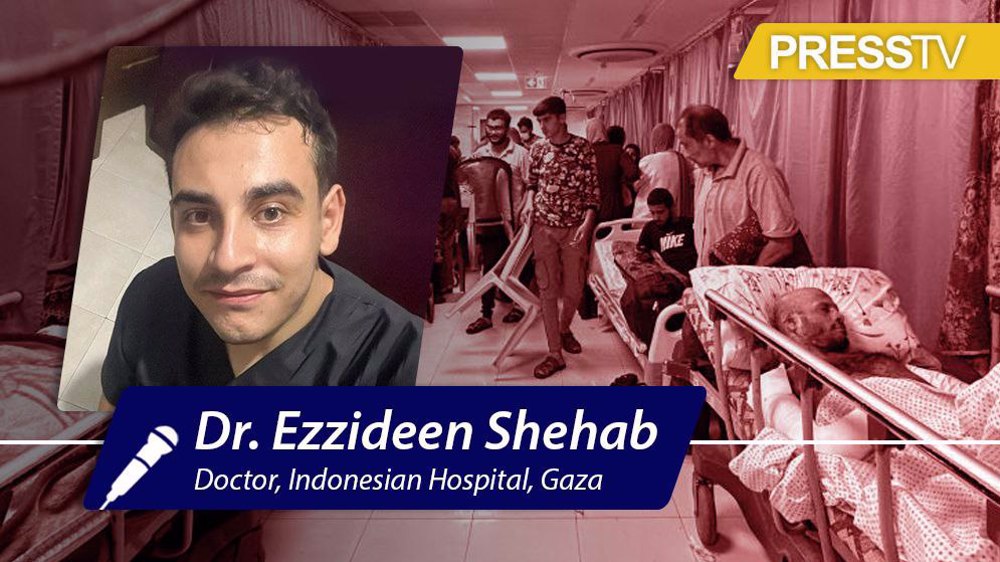
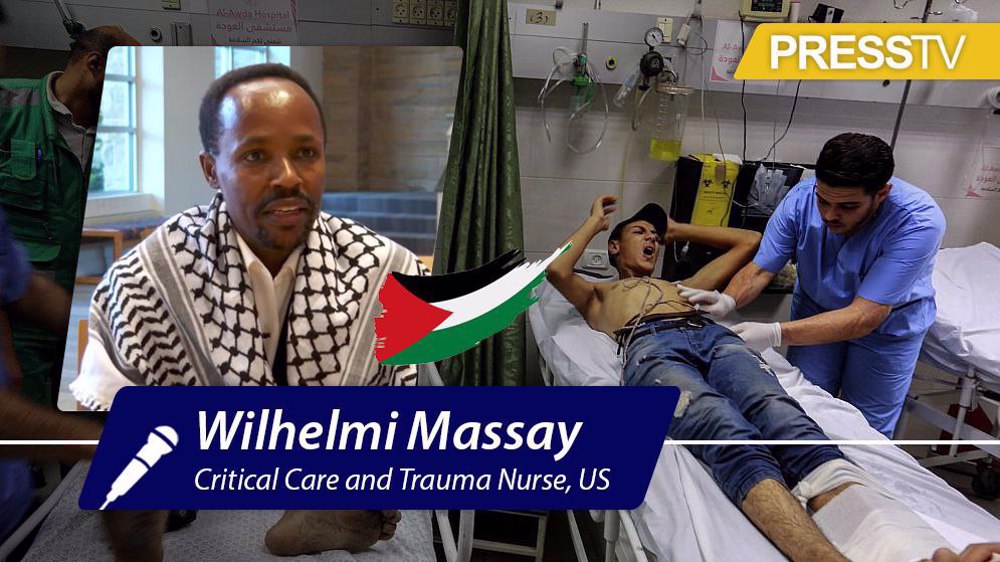
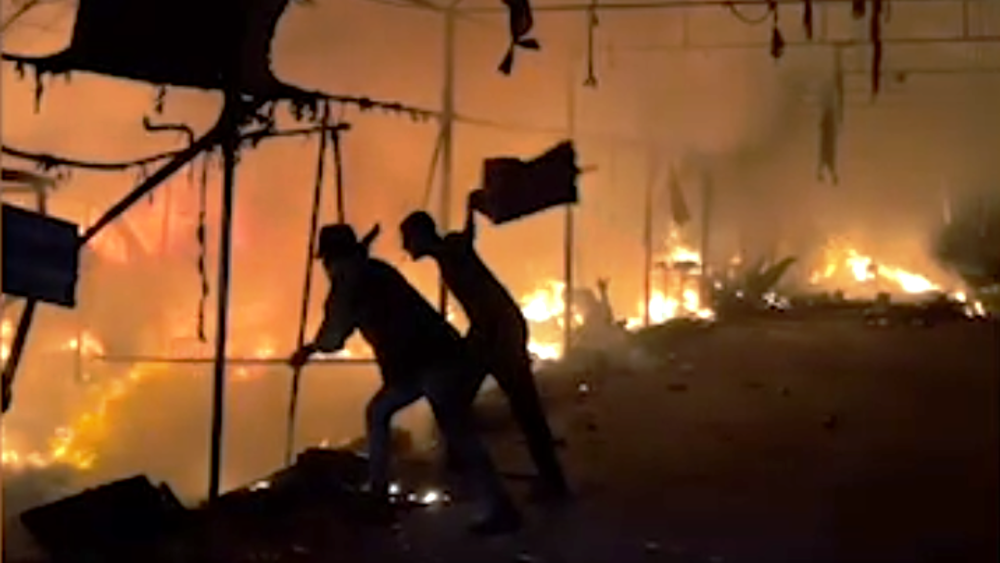
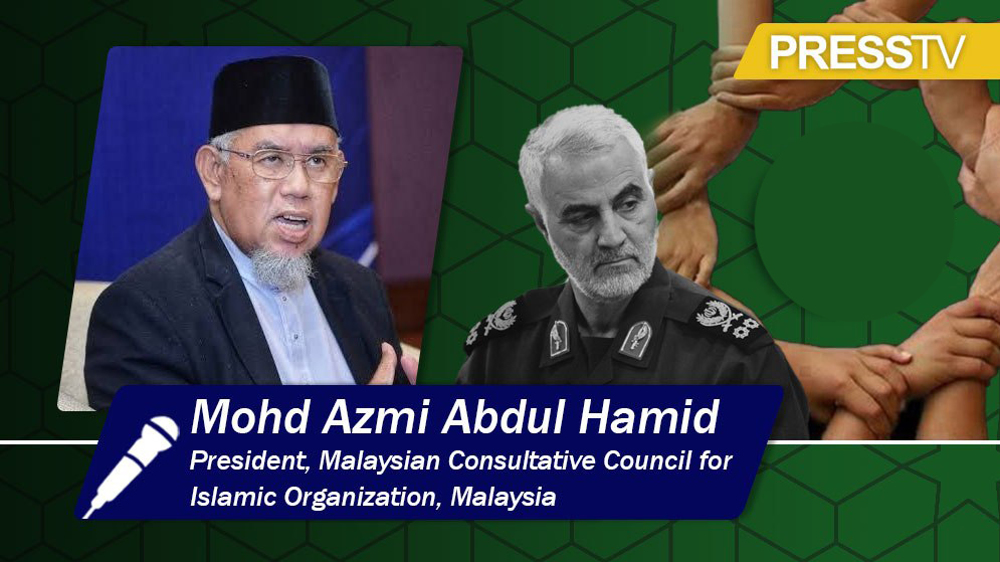





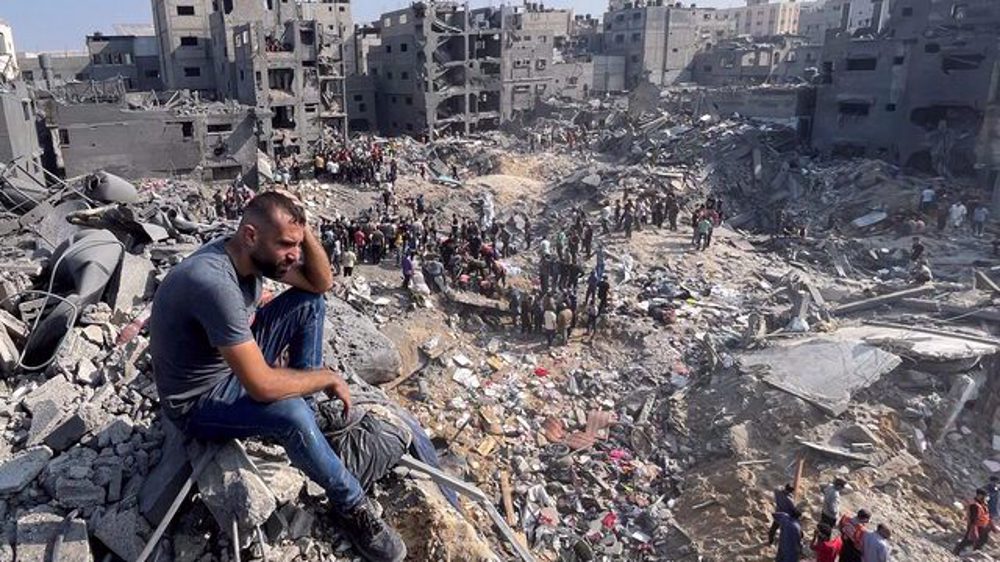
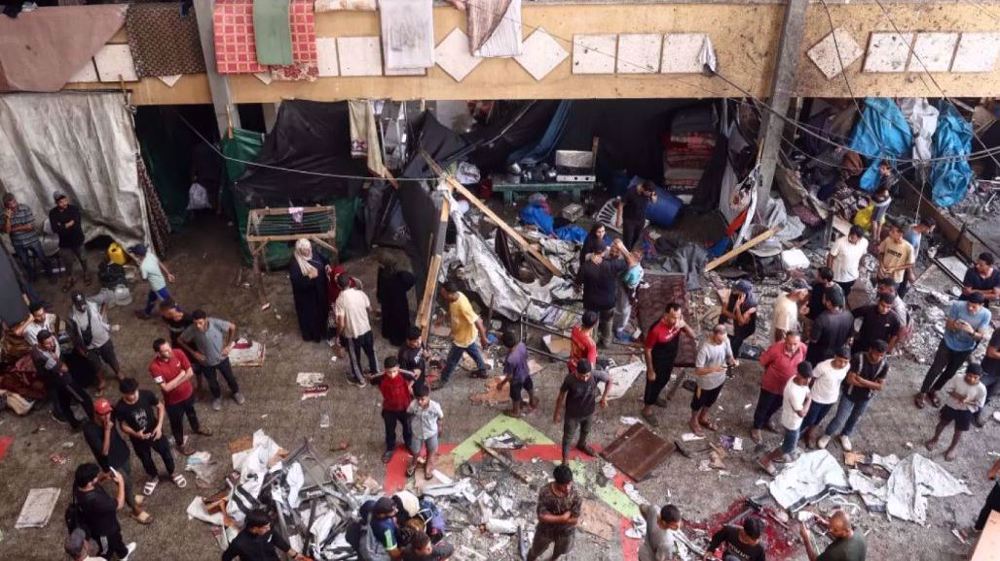
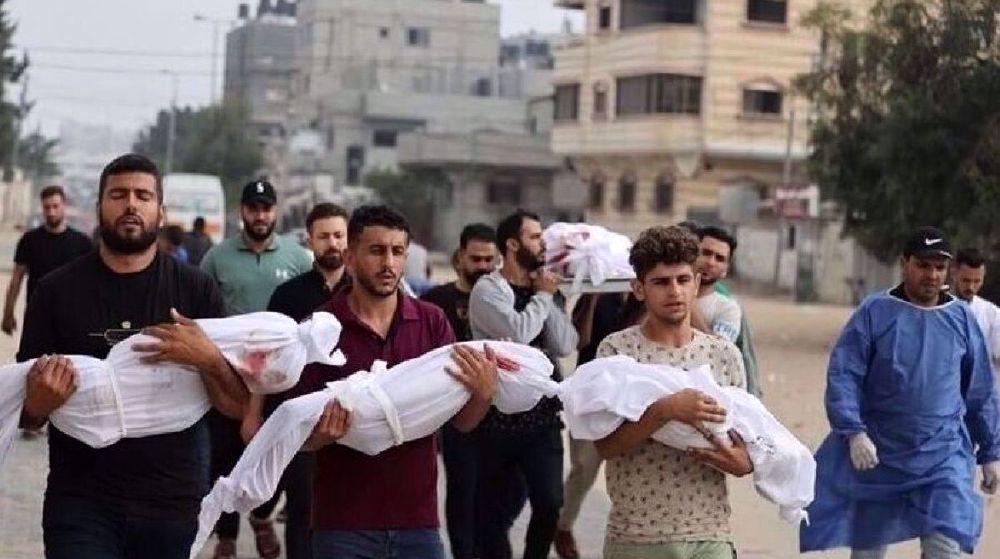
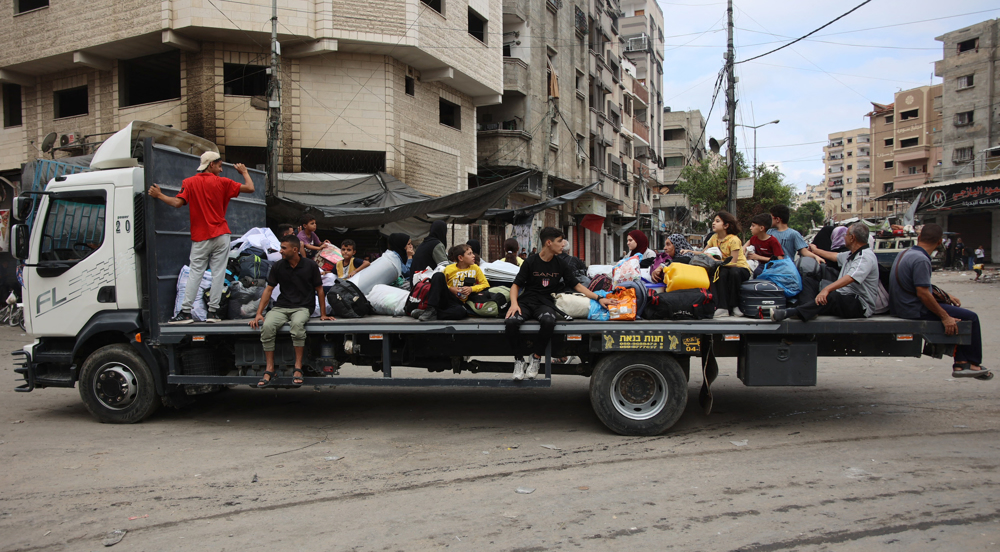
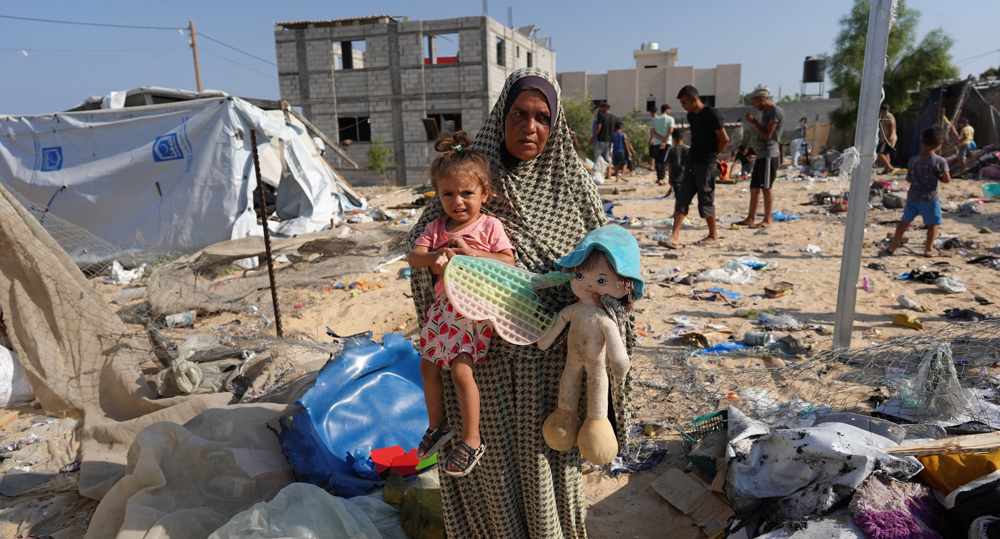

 This makes it easy to access the Press TV website
This makes it easy to access the Press TV website